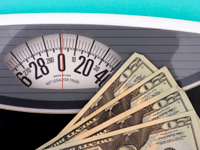
For cramps to occur, certain mechanisms within muscles start misfiring when a muscle is fatigued, causing muscles to bunch together when it should relax. So how do we stop it?
In a study, athletes conducted a variety of exercises and then cramps were electrically stimulated in their big toe. Volunteers were told to relax and cramps lasted for ~2.5 minutes. The volunteers did not drink any fluids.
Then cramps were again stimulated, but athletes immediately drank 2.5 ounces of deionized water or pickle juice. Within 85 seconds, the men drinking pickle juice stopped cramping. But cramps continued in men drinking water. Pickle juice stopped a cramp 45% faster than drinking no fluids and 37% faster than water.
While the mechanism is unclear, the key ingredient is vinegar as another study showed drinking pure vinegar was more effective than drinking pickle juice.









